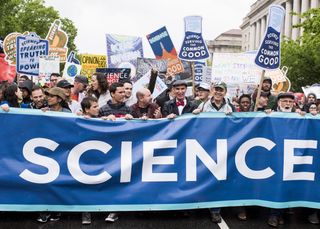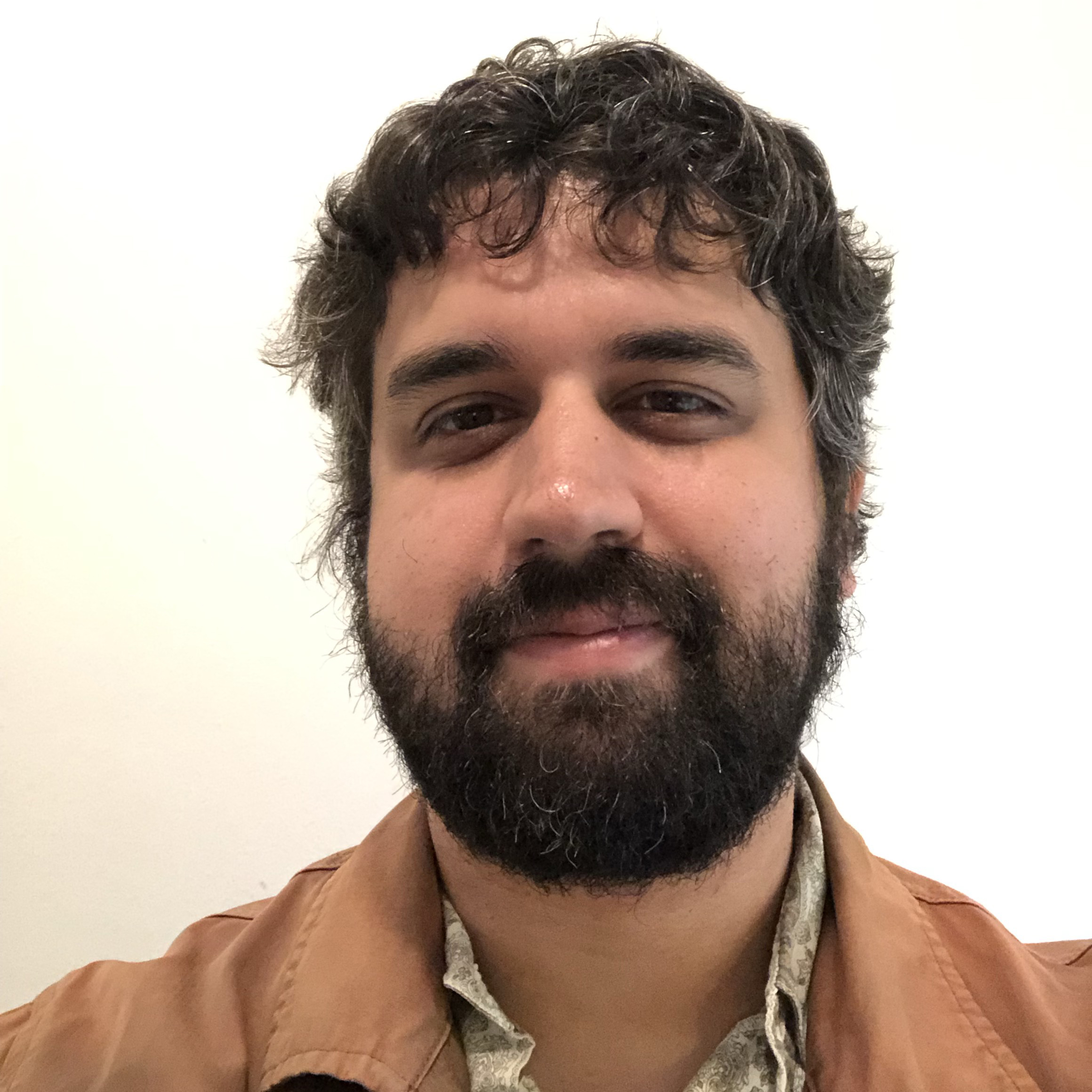Hey, Congress: Scientists Are Coming for Your Seats

From commanding eight nuclear reactors to building a telecom infrastructure in Central America, the experiences of U.S. political candidates have gotten more interesting of late. A wave of political hopefuls with science-y backgrounds may soon bring fascinating experiences and vital knowledge to the country's governing bodies.
Famed astrophysicist and science popularizer Neil deGrasse Tyson once lamented that most members of the U.S. Congress are lawyers, with few STEM (science, technology, engineering and math) representatives. "Where are the engineers? Where's the rest of … life?" he asked in 2011 on the HBO show "Real Time with Bill Maher."
The last year has seen hundreds of new candidates try to answer Tyson's question. More than 450 candidates with STEM backgrounds are running at all levels (local, state and federal), including 60 at the federal level, according to estimates from 314 Action, a group that supports such candidates. The organization has helped train 1,400 STEM professionals in campaigning, with another 35 to 40 completing trainings this past weekend in Chicago. [How Congress Is Cutting Science Out of Science Policy (Op-Ed)]
Those numbers represent a huge change; with the recent loss of Rep. Louise Slaughter, a New York representative with a microbiology background who died March 16, Congress currently has only two members with hard science backgrounds (physics and chemistry), said Ted Bordelon, a spokesman for 314 Action.
That flurry of activity came partially in response to the election of Donald Trump as president, said 314 Action President Shaughnessy Naughton. But candidates are also reacting to long-standing issues like conservative opposition to actions that would reduce greenhouse gases, proposed cuts to research funding and efforts to repeal the Affordable Care Act (aka Obamacare), she said.
"The attack on science didn't start with the Trump administration, but it certainly has been a catalyst for getting scientists to step up and get involved," Naughton said. [Grading Trump's First 100 Days in Office: A Science Report Card]
Here are some of the unique perspectives that may soon come to office: Elaine Luria, Brian Forde, Ellen Lipton, Dr. Mai Khanh Tran and Lauren Underwood. Three of them — Lipton, Luria and Underwood — earned the latest 314 Action endorsements.(Live Science and parent company Purch do not endorse any candidates.)
Sign up for the Live Science daily newsletter now
Get the world’s most fascinating discoveries delivered straight to your inbox.
Nuclear command at sea
For 20 years, Luria commanded some of the world's most technologically complex vehicles, serving on nuclear-powered craft for the U.S. Navy. There, she boarded Iraqi oil-smuggling ships to enforce sanctions and commanded combat-ready units of sailors. The physics grad and Navy-trained nuclear engineer also used her technical training extensively while in the Navy, she said.
"A ship is a floating city with few resources other than the people on board, and a lot of times when a weapons system may not be operating the way it needs to be … you're taking out the schematics and looking at electrical diagrams. You're getting down to the micro-miniature repair level," she said.
The political system needs the problem-solving skills like those she developed at sea, added Luria, who's running for Virginia's 2nd Congressional District seat.
"When we look at legislation, a lot of the topics that we deal with really have to be based off of sound decisions based off data," Luria said. "I think that Washington desperately needs more scientists in Congress."
Building up Nicaragua's technology
As the recent congressional questioning of Facebook's Mark Zuckerberg revealed, many politicians lack the technological knowledge needed for today's problems, said Forde, who's running for California's 45th Congressional District seat. He first learned about the need for better technological expertise in government after serving in the Peace Corps in Nicaragua, he said.
There, Forde saw an opportunity to reduce telephone costs for poor, rural residents via VoIP (voice over Internet Protocol). He realized, though, that the country's legal system had a technological blind spot. "One of my concerns was that this technology wasn't legal. [And] it wasn't illegal," he said. The law simply wasn't prepared to deal with VoIP. Forde succeeded in launching his company, but the experience made him wonder about other tech blind spots.
"I saw that governments, including our own … could be on the wrong side of history for technology if you do not have technologists in government," he said.
To help address that need, Forde served under President Barack Obama as a senior technology adviser. Obama understood the importance of placing technology experts in the White House, said Forde, who began coding and building computers as a kid, and graduated from UCLA.
"There is a clear role for technologists in government," Forde said. And the public needs government servants who understand critical current issues, like automation's threat to jobs, or net neutrality, he said.
Biochemist brings research to the legislature
Lipton paired degrees in biochemistry and law, serving as a patent attorney in the biotech and materials-chemistry industries. Through that work, she honed a probing, questioning approach to problem solving that she brought to her first elective role, as a Michigan state representative, Lipton said. She's now running for national office in the state's 9th Congressional District. [Check Out the Coolest Chemical Reactions]
"I would look at legislative problems as problems to be researched and thought through," she said. Lipton's inclination toward thorough research helped her with one of her biggest legislative achievements. Partisan talking points about "throwing money" at schools had stymied any education funding increases for years, Lipton said, until she successfully pushed for an "adequacy study" to find exactly what level of funding students needed.
Results from the study helped spur long-needed funding allocations for Michigan schools, she said.
"I feel like it helped break the logjam," Lipton said. "People know now, in both parties, we need to fund schools."
From refugee to Harvard-trained doctor
Dr. Tran took a long journey to her career as a pediatrician in California, where she's now running for Congress in the 39th District. One of the last children airlifted out of Vietnam in "Operation Babylift," which occurred at the end of the war as Saigon fell, Tran came to the United States in 1975. She went on to work as a farm laborer and entered Harvard for her undergraduate degree, supporting herself as a janitor while studying there. She then earned her medical degree through the Brown-Dartmouth joint program.
That path left her with a feeling of gratitude toward her adopted country and a desire to give back, she said.
"When I saw that American soldier [who] came up and carried me off the plane … he really represented to me the vision of America that I still hold very dearly in my heart," Tran said. It was a vision of "a land that's ready to care for those in need."
Tran put that feeling of gratitude first toward her medical work and now as a candidate. "So, when I see that we have pockets of people in our communities who need that helping hand … I feel a huge responsibility," she said.
Her experience on the "front lines" of health care also convinced her of the need for perspectives like hers in politics.
"I see patients coming in daily that need not only good insurance but also quality care," Tran said. "I think that is a perspective that isn't there when it comes to health care policies that are being made in Congress."
For this nurse, it's personal
Like Tran, Underwood has firsthand experience with the health care needs of Americans. Now running for Congress in Illinois' 14th District, she worked for 10 years as a registered nurse.
But the motivation to put her health care expertise to use as a candidate ultimately came when her congressman promised not to vote for Obamacare repeal if it ended protections for pre-existing conditions — a promise he broke. "I was mad that he didn't have the integrity to be honest with us. … So I said, 'You know what? It's on; I'm running.'"
The right pros for the job
The STEM candidates swelling the ranks of U.S. politics won't just make races more interesting; they should get more done, too, Naughton said.
Those candidates are vowing to bring attention and focus to science-oriented issues, from climate change to vaccines. They also want to approach today's issues in a more scientific way, with many, for example, calling to repeal the so-called Dickey Amendment, which restricts funding for public health research into gun violence.
"When you look at some of the most critical issues facing our country — whether it's climate change or nuclear/chemical weapons or cybersecurity … who better to be addressing these issues than people trained in science and engineering?" Naughton said.
Editor's Note: This article was updated to indicate there are two members currently in Congress with hard science backgrounds.
Original article on Live Science.

Michael Dhar is a science editor and writer based in Chicago. He has an MS in bioinformatics from NYU Tandon School of Engineering, an MA in English literature from Columbia University and a BA in English from the University of Iowa. He has written about health and science for Live Science, Scientific American, Space.com, The Fix, Earth.com and others and has edited for the American Medical Association and other organizations.

Packs of dog-shaped robots could one day roam the moon — if they can find their footing on Earth first

See the explosive 'devil comet' get its tail ripped off by a solar storm days before its close approach to the sun

Global 'time signals' subtly shifted as the total solar eclipse reshaped Earth's upper atmosphere, new data shows
Most Popular

